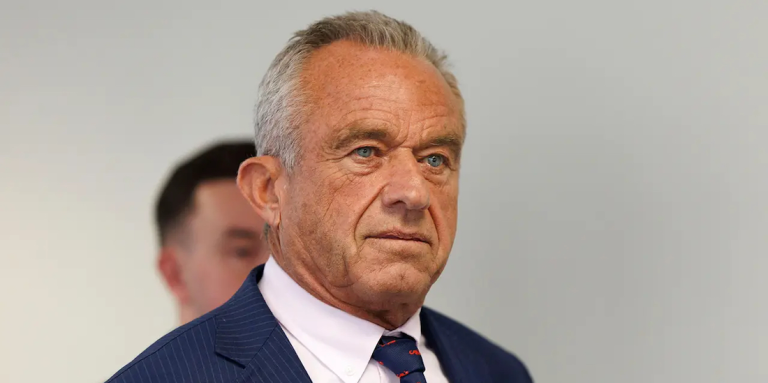
Wellness farm proposal draws on centuries-old ideas, raising questions about modern psychiatric care and community treatment
New York, N.Y. — Robert F. Kennedy Jr.’s wellness farm proposal marks a distinct shift in the national conversation about mental health and addiction.
A Return to “Moral Treatment”
Rather than expanding access to psychiatric medications or traditional therapy, Kennedy envisions rural retreats where individuals struggling with addiction or mental illness can recover through farming, manual labor, and a “natural” lifestyle.
This approach is rooted in the late 18th-century concept of “moral treatment,” pioneered by figures like Quaker William Tuke in England and French physician Philippe Pinel. Their model emphasized humane care, dignity, and the therapeutic value of nature and work — radically different from the harsh asylums of their era.
The Kennedy Family Legacy in Mental Health
Kennedy’s proposal is not without precedent in his own family. President John F. Kennedy’s 1963 Community Mental Health Act aimed to close large, custodial institutions and replace them with 1,500 community mental health centers-an ambitious plan that was never fully realized.
Subsequent Kennedys, including Eunice Shriver and Senator Edward Kennedy, advocated for improved conditions and expanded services for those with mental illness and intellectual disabilities. RFK Jr.’s wellness farm idea, however, is a notable departure from these efforts, focusing on agricultural rehabilitation rather than integrated, community-based care.
Wellness Farms: Historical Roots and Modern Realities
The wellness farm concept is not new. Early U.S. asylums incorporated farming as therapy, and 20th-century “narcotic farms” sought to rehabilitate individuals with substance use disorders through agricultural work. However, these models often faltered when scaled up, and relapse rates remained high.
A 2019 review found little evidence that modern “care farms” significantly improve treatment outcomes for depression, anxiety, or addiction. Today, farm-based rehabilitation is often marketed as a luxury service, combining nature exposure with psychiatric support-an approach not accessible to most Americans.
Medication, Choice, and Controversy
A central feature of Kennedy’s proposal is its skepticism toward psychiatric medications. He has repeatedly argued that American physicians overprescribe drugs for conditions like depression and ADHD, and he envisions wellness farms as places where individuals can detox from both illegal substances and psychiatric medications if they wish.
Critics argue that this stance oversimplifies the role of medication in mental health recovery and fails to address the broader challenges of access to therapy, housing, and social support. While Kennedy insists participation would be voluntary, some have raised concerns about the potential for coercion or inadequate medical oversight4.
Public and Professional Response
Kennedy’s ideas have tapped into widespread frustration with the mental health system, particularly the perception that medication is prioritized over holistic care. However, mental health professionals caution that farm-based rehabilitation cannot replace the need for comprehensive, community-based services. They point to the importance of multidisciplinary teams-including doctors, nurses, psychologists, and social workers-along with social supports like housing and employment assistance. Experts emphasize that isolating individuals from their communities, even in serene natural settings, is unlikely to address the root causes of mental distress or addiction.
Looking Forward: Community Care or Rural Retreats?
As the debate continues, Kennedy’s wellness farm proposal highlights a broader tension in U.S. mental health policy: the appeal of “natural” solutions versus the need for evidence-based, integrated care. While reconnecting with nature and community can play a role in recovery, most experts agree that a robust, accessible system of community mental health services remains the most effective and equitable approach. Building such a system, they argue, is a more urgent challenge than returning to the therapeutic farms of centuries past.
RFK Jr.’s 18th-Century Approach to Mental Health Sparks Debate (May 7, 2025)
#MentalHealthPolicy #RFKJr #WellnessFarms
TAGS: mental health, psychiatric treatment, wellness farms, RFK Jr., community care, addiction, policy, history
Social Media Blurbs
X (Twitter):
RFK Jr.’s 18th-century-inspired wellness farm proposal for mental health and addiction sparks debate. Can farm retreats replace medication? #MentalHealthPolicy #RFKJr bit.ly/yourlink
Bluesky:
RFK Jr. proposes wellness farms for mental health, drawing on 18th-century “moral treatment.” Experts urge focus on community care. #MentalHealthPolicy #RFKJr bit.ly/yourlink
LinkedIn:
RFK Jr. is reviving an 18th-century mental health model with his wellness farm proposal, emphasizing nature and manual labor over medication. While the idea resonates with those frustrated by the current system, experts caution that comprehensive, community-based care is more effective. Read about the historical roots, professional perspectives, and policy implications. #MentalHealthPolicy #WellnessFarms #RFKJr www.yourlink.com
Truth Social:
RFK Jr. wants wellness farms to treat mental health and addiction, inspired by 18th-century ideas. Will this work? #MentalHealthPolicy www.yourlink.com
Mastodon:
RFK Jr.’s wellness farm proposal for mental health draws on 18th-century “moral treatment.” Can reconnecting with nature and work replace medication? Experts say comprehensive community care is still needed. #MentalHealthPolicy www.yourlink.com
Instagram:
RFK Jr. proposes wellness farms for mental health and addiction, inspired by 18th-century ideas. Will nature and manual labor replace medication? Share your thoughts!
#MentalHealthPolicy #RFKJr #WellnessFarms
(Link in bio)
Facebook:
RFK Jr. is reviving an 18th-century idea: wellness farms for mental health and addiction recovery. The proposal, inspired by “moral treatment,” focuses on nature, manual labor, and reducing reliance on psychiatric medications. Experts urge a focus on community-based care. What do you think? #MentalHealthPolicy #RFKJr www.yourlink.com
Reddit:
RFK Jr.’s wellness farm proposal for mental health and addiction draws on 18th-century ideas. Do you think reconnecting with nature and work can replace medication and therapy? Why or why not? #MentalHealthPolicy www.yourlink.com